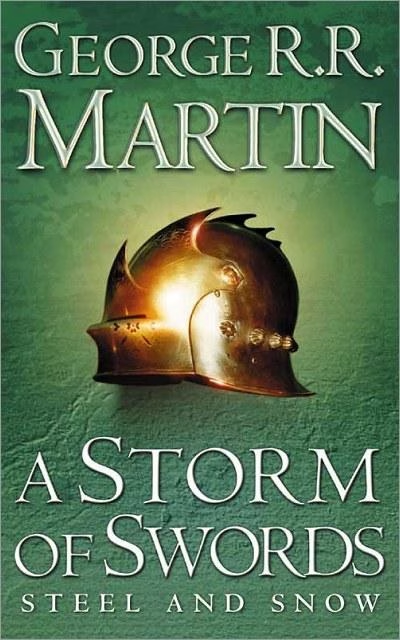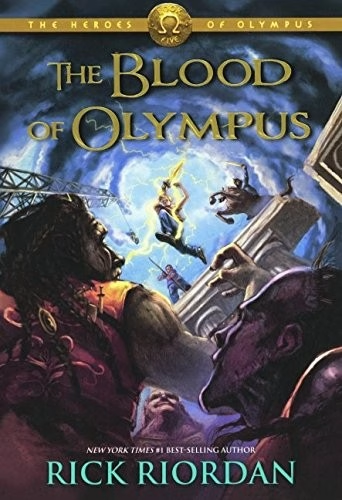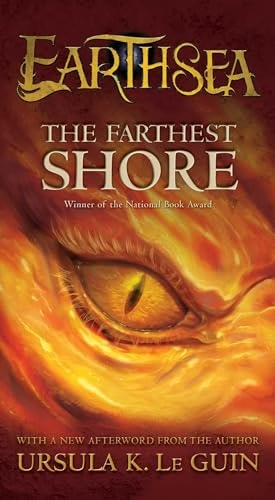Plot Summary
The Great Quest of Atreyu
The story begins with Bastian Balthazar Bux, a lonely, overweight, and bullied boy who escapes his tormentors by hiding in an old bookshop. There, he discovers a book bound in copper-colored silk titled The Neverending Story. Compelled by an irresistible urge, he steals the book and hides away in his school’s attic to read it.
The book transports Bastian to the magical realm of Fantastica, which is being consumed by a terrifying force called the Nothing. This plague of emptiness is linked to a mysterious illness afflicting Fantastica’s ruler, the benevolent Childlike Empress. Messengers from all corners of the land gather at her home, the Ivory Tower, seeking a solution. The Empress’s physicians are helpless, and it is decided that a great hero must be sent on a quest to find a cure.
The mission, called the Great Quest, is entrusted to a young boy from the Greenskin people named Atreyu. He is given AURYN, the Empress’s amulet, which will guide and protect him. Atreyu sets off on his horse, Artax, with the weight of Fantastica on his shoulders.
His journey is fraught with peril and sorrow. He is forced to cross the Swamps of Sadness, where his beloved horse, Artax, succumbs to the overwhelming despair and sinks into the mire. A heartbroken Atreyu continues alone and finds Morla the Aged One, an ancient giant turtle. Morla, who is so old she has become indifferent to everything, reveals that the Empress is sick because she needs a new name, a name that only a human child from the “Outer World” can give her.
Unsure how to find a human, Atreyu is guided by a dream to seek the Southern Oracle. On his way, he becomes entangled in the web of Ygramul the Many, a monstrous swarm of insects. There, he also finds Falkor, a white luckdragon, trapped in the web. Ygramul reveals a secret: its poison can transport a victim anywhere in Fantastica before it kills them in an hour. Atreyu and Falkor both allow themselves to be bitten and wish themselves to the Southern Oracle.
They are found near death by two gnomes, Urgl and Engywook, who nurse them back to health. Engywook, a scholar of the Oracle, explains that Atreyu must pass through three gates to reach it:
* The Great Riddle Gate: Guarded by two sphinxes whose gazes would freeze any creature in place until they solve all the riddles of the universe.
* The Magic Mirror Gate: A mirror that shows a person their true, inner self.
* The No-Key Gate: A gate that only opens for those who can forget their purpose and want nothing.
Atreyu successfully passes the gates. In the Magic Mirror, he is shocked to see the image of a fat little boy reading a book in an attic—Bastian himself. In the Oracle, a voice named Uyulala tells him in verse that the only way to save Fantastica is to find a human child to give the Empress her new name.
Disheartened by the seemingly impossible task of leaving Fantastica to find a human, Atreyu and Falkor set out to find the borders of the realm. Their journey leads them into a battle between the four Wind Giants. Atreyu is thrown from Falkor’s back, losing AURYN in the ocean below. He washes ashore in the Land of Ghosts and makes his way to Spook City, a place for Fantastica’s dark creatures. There, he meets Gmork, a werewolf chained in a backyard. Gmork reveals he is from the human world and was sent to kill Atreyu to prevent him from finding a savior. He explains the horrifying truth of the Nothing: any Fantastican who is absorbed by it is reborn in the human world as a lie, helping to manipulate humans and destroy their belief in Fantastica. Just as the Nothing closes in, Gmork dies, but his jaws clamp onto Atreyu’s leg in a final act of malice.
Meanwhile, Falkor finds AURYN at the bottom of the sea. The amulet guides him to the Nothing-encircled Spook City, where he rescues Atreyu just in time. Wounded and exhausted, they fly to the Ivory Tower, believing the quest has failed.
The Rise and Fall of Bastian
When Atreyu arrives at the Magnolia Pavilion, the Childlike Empress is waiting. She reveals that she knew the answer to the quest all along. The true purpose of Atreyu’s journey was not to bring back a message, but to bring the human savior himself. His adventures were a story meant to capture the heart of the human reader—Bastian—and guide him into Fantastica. Bastian, however, is hesitant to enter the story.
To force his hand, the Empress decides to visit the Old Man of Wandering Mountain, the chronicler who writes down The Neverending Story. She makes him read the entire story aloud from the beginning. This creates a terrifying loop: the story begins again, describing Bastian stealing the book, reading about Atreyu, reading about the Empress visiting the Old Man, who then begins to read the story again. Trapped in this eternal return, Bastian realizes he is the only one who can break the cycle. He cries out the new name he has chosen for the Empress: “Moon Child!”
Bastian is pulled into the darkness of Fantastica, now reduced to a single grain of sand. Moon Child gives him AURYN, on the back of which is the inscription: “DO WHAT YOU WISH.” From his desires, Fantastica is reborn. He creates Perilin, the Night Forest, and Goab, the Desert of Colors. He becomes a handsome and powerful prince. In the desert, he meets the lion Grograman, the Many-Colored Death, and is given the magic sword Sikanda.
His deepest wish is for companionship and to be admired. This leads him to the Silver City of Amarganth, where he is joyfully reunited with Atreyu. Bastian demonstrates his newfound power by creating stories that become true and easily defeating the mightiest heroes in a tournament. He becomes a celebrated figure, but his reliance on AURYN has a terrible cost: with every wish he makes, he loses a memory of his own world.
Atreyu and Falkor grow concerned as they see Bastian becoming arrogant and forgetful. Their friendship is strained when Bastian falls under the influence of the evil sorceress Xayide, who preys on his growing vanity and desire for power. She convinces him that Atreyu is a rival and that Bastian’s ultimate destiny is to replace the Childlike Empress and become the Emperor of Fantastica.
This ambition leads to a tragic climax. Bastian marches on the Ivory Tower with an army of followers. Atreyu, seeking only to save his friend from losing himself completely, leads a rebellion against him. During the battle, Bastian, blinded by rage, draws Sikanda against his friend’s will and strikes Atreyu, gravely wounding him. The Ivory Tower is destroyed in the conflict.
His victory is hollow. Filled with a confusing mix of triumph and despair, Bastian sets off to continue his quest for emperorship. His journey leads him to the City of Old Emperors, a madhouse populated by humans who, like him, came to Fantastica, wished for power, and lost all their memories, leaving them trapped forever with no identity or purpose. Horrified, Bastian realizes this is the fate that awaits him.
His only remaining wish is to return home and, more importantly, to be able to love. This final, true desire guides him through the Sea of Mist and to the House of Change, where a motherly figure, Dame Eyola, helps him shed his false ambitions. To find the way back to his world, he must find the Water of Life, but to do that, he must find a single remaining memory of his home. He travels to Yor’s Minroud, a mine of forgotten dreams, where he patiently digs in total darkness. He finally unearths a single image: a man in a white smock, trapped in a block of ice. This man is his father. The effort of finding this dream costs him his final memory of himself—his own name.
Now an anonymous boy, he is found by Atreyu and Falkor. Atreyu leads him to the Water of Life, which is found at the very center of AURYN. Bastian gives the amulet back to Atreyu. Because Bastian has no memories left, Atreyu vouches for him, declaring himself Bastian’s friend. This act of love allows Bastian to pass. He drinks from the Water of Life, which restores his memory and his true self. He is no longer a prince, but the small, fat boy he was, now filled with the joy of being able to love.
To return to his world, he must finish all the stories he began in Fantastica. Knowing this is impossible for Bastian, Atreyu makes the ultimate sacrifice of friendship and promises to complete the stories for him. Bastian returns to the school attic, discovering that only a single night has passed. He rushes home and has a tearful, loving reunion with his father. He later visits the bookshop to confess to Mr. Coreander, who reveals that he, too, is a visitor to Fantastica and that the book has moved on to find its next reader.
Characters
Bastian Balthazar Bux
Bastian is the story’s true protagonist. He begins as a deeply unhappy child, seeking refuge from the pain of his mother’s death and relentless bullying within the world of books. His initial journey into Fantastica is one of pure wish-fulfillment. He transforms from a victim into a powerful, handsome, and celebrated hero. However, this power, granted by AURYN, proves corrupting. Each wish erodes his memory and inflates his ego, leading him down a path of arrogance, paranoia, and tyranny. His journey illustrates the profound danger of unchecked imagination and the seductive nature of power. He must lose everything—his power, his fabricated identity, and even his name—to discover his truest desire: not to be great, but to be capable of love.
Atreyu
Atreyu is the heroic figure of the story-within-the-story that Bastian reads. A brave and noble young hunter of the Greenskin people, he embodies loyalty, courage, and determination. His Great Quest to save the Childlike Empress is a classic hero’s journey, marked by sacrifice and perseverance. He is Bastian’s opposite: where Bastian is driven by personal desire and fantasy, Atreyu is driven by duty and a selfless love for his world. He acts as Bastian’s guide and, ultimately, his moral compass. Even when Bastian turns against him, Atreyu’s actions are motivated by a desperate need to save his friend from himself, cementing his role as the unwavering heart of Fantastica.
The Childlike Empress (Moon Child)
The ruler of Fantastica, she is an ancient and timeless being who appears as a beautiful young girl. She is the center of all life in her realm, yet she never exerts her power directly. Her illness and Fantastica’s decay are a direct result of the human world’s loss of imagination. She is an enigmatic and paradoxical figure; she is all-powerful yet helpless, all-knowing yet requires a quest to be undertaken. She represents the essence of fantasy itself—a force that gives life and meaning but must be continually renewed by the human heart.
Falkor
A pearly-white luckdragon, Falkor is a creature of air, warmth, and boundless optimism. His voice sounds like the ringing of a great bronze bell, and his presence is a source of hope and comfort. He is a steadfast companion to Atreyu, and later to Bastian, offering wisdom and encouragement. Falkor represents the inherent goodness and joy within Fantastica. His belief in good luck is not a passive hope but an active force, a reminder that even in the darkest of times, fortune favors the brave and the true of heart.
Gmork
A werewolf and a servant of the powers seeking to destroy Fantastica, Gmork is a creature with no world of his own, able to cross between the human and Fantastican realms. He personifies the nihilistic forces that seek to turn fantasy into lies to better control humanity. In his chilling conversation with Atreyu, he lays bare the philosophical core of the book: that Fantastica’s destruction feeds the human world with cynicism, manipulation, and despair.
Xayide
A powerful sorceress with one green and one red eye, Xayide is a master of manipulation. She recognizes Bastian’s growing hunger for power and attaches herself to him as an obedient “slave,” all while subtly guiding him toward his most destructive impulses. She represents the corrupting influence of the ego, isolating Bastian from his true friends and feeding his vanity until he is ready to declare himself emperor. Her hollow armored giants, which are controlled by her will, are a potent symbol of power without substance.
Core Themes
The Power and Danger of Imagination
The Neverending Story is a profound exploration of the nature of imagination. Bastian’s journey is a cautionary tale about the power of wishes. The inscription on AURYN, “Do What You Wish,” is revealed not as a license for selfish indulgence, but as a difficult commandment to discover one’s truest will. Bastian’s initial wishes—to be strong, brave, and admired—are superficial fantasies born of his unhappiness. Fulfilling them leads him not to happiness, but to arrogance and isolation. The story argues that imagination, while essential for a healthy existence, becomes destructive when it is unmoored from love, memory, and identity.
The Interdependence of Reality and Fantasy
The book establishes a symbiotic, and fragile, relationship between the human world and Fantastica. Fantastica is the realm of stories and dreams, and it requires human imagination to survive. When humans stop believing, Fantastica is consumed by the Nothing, and its displaced inhabitants flood the human world as lies, cynicism, and manipulative ideologies. The two worlds can either poison or heal one another. A human who travels to Fantastica and returns brings back wonder and creativity, making their own world richer. The ultimate message is that reality and fantasy are not opposites, but two halves of a whole that must be in balance.
The Journey of Self-Discovery
Both Bastian and Atreyu undertake quests that are fundamentally about discovering their true nature. Atreyu’s is an external, heroic quest that tests his courage and loyalty. Bastian’s, however, is an internal, spiritual journey. He begins by running away from himself, creating a new, idealized persona in Fantastica. But this new self is a hollow shell. To truly find himself, he must undergo a process of un-making: he must lose all the gifts, powers, and memories he has accumulated. His journey culminates not in becoming an emperor, but in becoming a boy capable of loving his father and himself.
Stories, Memory, and Identity
Fantastica is the “land of stories,” where narrative itself is the fabric of reality. Characters are aware they are in a story, and Bastian himself becomes a character. His power lies in his ability to create new stories, but this power comes at the cost of his memories, which are the foundation of his identity. The book suggests that who we are is the sum of our stories and memories. By losing his past, Bastian nearly loses himself entirely. His redemption comes only when he rediscovers a memory of his father and Atreyu promises to finish his incomplete stories, restoring the link between his past, present, and future.
Plot Devices
Story Within a Story (Mise en abyme)
This is the central narrative structure of the book. Bastian reads a book called The Neverending Story, which mirrors his own experiences and emotions, blurring the line between reader and character. The device reaches its climax when the Old Man of Wandering Mountain begins to read the story from the beginning, creating an infinite loop that includes Bastian himself. This forces Bastian to recognize his role in the narrative and actively enter it, making the story literally “never-ending” until he acts.
AURYN
The amulet of the Childlike Empress is a powerful symbol with a dual function. It represents the Empress’s absolute authority and the connection between the two worlds. For Atreyu, it is a source of guidance and protection. For Bastian, it is the instrument of wish-fulfillment, granting him godlike power. However, it is also the mechanism of his memory loss, a double-edged sword that both creates and destroys. Its form—two snakes, one light and one dark, devouring each other—symbolizes the eternal cycle and the interdependence of opposing forces like creation and destruction, reality and fantasy.
The Nothing
The Nothing is the primary antagonist of the first half of the story. It is not merely emptiness but an active, terrifying force of non-existence that erases parts of Fantastica. It is a physical manifestation of the human world’s growing cynicism, apathy, and forgotten dreams. It represents the ultimate horror of meaninglessness. When it consumes a Fantastican, it doesn’t just destroy them; it perverts them into a “lie” in the human world, making it one of literature’s most potent metaphors for the consequences of a loss of faith and imagination.





